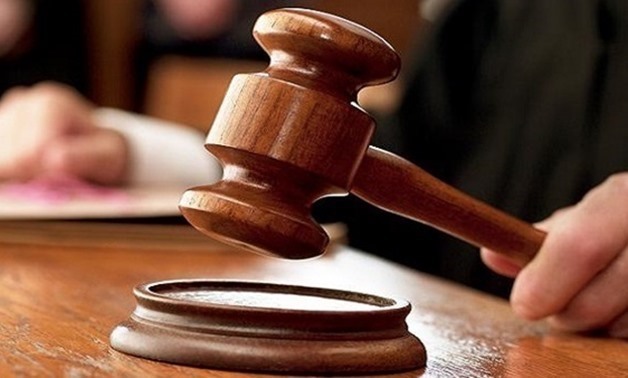
A Criminal Court - File Photo
CAIRO – 27 July 2018: Cairo Criminal Court, convened at Tora and chaired by Counselor Hassan Farid, reviewed three sessions in a trial of 30 defendants accused of joining a terrorist organization of ISIS. The defendants used to run their terrorist activities at Ezbet Mohsen district in Alexandria.
Attorney General Nabil Sadek had ordered to refer the 30 defendants to the Emergency High State Security Criminal Court for charges of forming a terrorist group, adopting the Takfiri ideology of ISIS, targeting churches and state facilities and receiving military trainings by ISIS members in Syria and Libya.
All defendants are accused of dozens of charges, but three of them are the most dangerous as follows:
Possession of explosive devices
Investigations revealed that some of the defendants had possessed a number of explosive belts, the crime for which the penalty law punishes its maker with a life sentence in prison as long as the possession is not licensed.
Moreover, Article 102 of the Criminal Code stipulates that the “death penalty is a punishment for the crime of using explosives with an intention of committing crimes mentioned in Article 87, political assassination or damaging public facilities.”
Possession of arms and ammunition
On July 14, the Criminal Court revealed during a session the amounts of ammunition and weapons seized at the terrorist cell headquarters at Ezbet Mohsen district in Alexandria.
Persons possessing unlicensed arms must be punished with imprisonment and be fined with not more than LE 5,000, according to the 394/195 Law, modified in 2012.
Furthermore, a fine of less than LE 15,000 and an imprisonment sentence are imposed on whoever possesses specific types of unlicensed arms such as riffles and gunfire. In the meantime, those possessing unlicensed automatic machines must be punished with a life sentence in prison and fine of less than LE 20,000, according to the Penalty Code.
Joining an outlawed group
The general prosecution accuses the 30 defendants of being affiliates to a terrorist group formed illegally.
A group of terrorists admitted in May 2017 carrying out the Palm Sunday attacks on April 9, 2017, targeting Mar Girgis’s Church in Tanta and St. Mark’s Coptic Orthodox Cathedral in Alexandria. ISIS claimed responsibility for the attacks, which left at least 45 dead and around 125 injured.
Egypt has been struggling for years to contain terrorist activities in Sinai. Many military operations have been carried out by army and police forces, killing hundreds of militants and building a buffer zone along the border with Gaza, so that the Egyptian authorities can curb the flow of militants and weapons infiltrating through underground tunnels.
Egypt’s President Abdel Fatah al-Sisi authorized the army chief of staff to use “all brute force” against terrorism.
In February, the Egyptian Armed Forces launched a full-scale military operation titled "Sinai 2018" to confront terrorist elements in Sinai and other areas across the country.
Military spokesman Tamer el-Refae announced a major military operation to purge the country from terrorism.

Comments
Leave a Comment